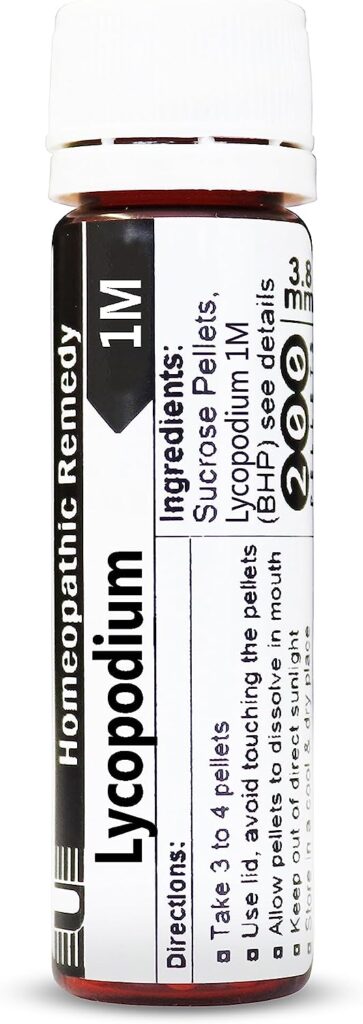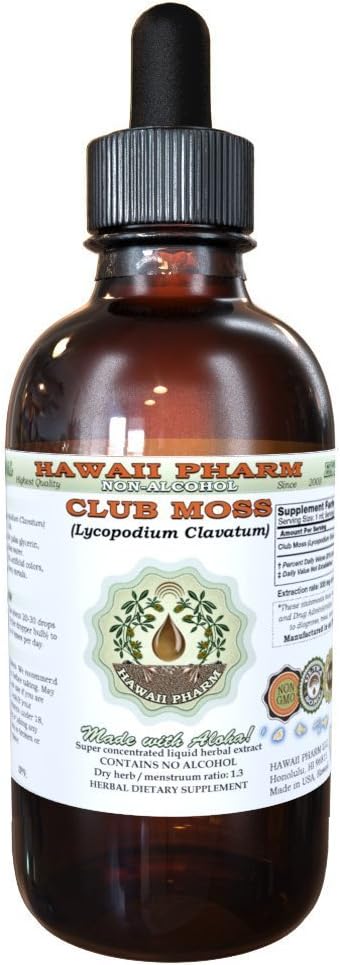Lycopodium Clavatum, commonly referred to as Clubmoss or Stag’s horn clubmoss, is a quintessential homeopathic remedy. Derived from the Lycopodium plant, it undergoes the potentization process, harnessing its therapeutic potential. The Lycopodium remedy unveils a profound impact on various physiological, psychological, and emotional domains.
Confidence and Digestive Disorders: Lycopodium Clavatum plays a pivotal role in addressing profound issues related to confidence and self-esteem. Individuals requiring this remedy often exhibit a love for power and dominance, which may be driven by an underlying lack of self-assurance. Their ego-driven behavior, coupled with an avoidance of responsibility, creates a complex psychological profile. This remedy proves valuable in tackling acute and chronic digestive disorders, providing relief from symptoms such as bloating, flatulence, and indigestion.

Physical Manifestations and Symptomatology: Characteristic physical symptoms associated with Lycopodium Clavatum often manifest on the right side of the body. Eczema and cracked heels, for instance, tend to be localized to this side. Symptoms exhibit a distinctive temporal pattern, worsening between 4 – 8 pm and in warm environments. The progression of symptoms from the right to the left side of the body is a hallmark of this remedy. Dry skin and mucus membranes are frequently observed, aligning with its overall constitutional picture. A noteworthy craving for sweets further characterizes individuals requiring Lycopodium Clavatum.
Emotional Landscape: Lycopodium Clavatum delves into the intricate fabric of human emotions. While a lack of self-confidence lies at its core, individuals often adopt compensatory behaviors such as haughtiness, boasting, or bullying to camouflage their insecurities. Paradoxically, they excel in public speaking despite their inner anxiety. This remedy reflects a dichotomy between intellectual pursuits and physical activities, with a preference for the former. Morning irritability and a propensity for ingratiating behavior with authority figures further define the emotional profile of those needing Lycopodium Clavatum.
Respiratory and Gastrointestinal Afflictions: Within the realm of respiratory ailments, Lycopodium Clavatum exhibits a distinctive trait—nasal blockages exacerbated upon lying down at night. In the gastrointestinal sphere, individuals requiring this remedy often grapple with bloating, flatulence, and abdominal rumblings. Notably, the consumption of flatulent foods like onions, beans, and cabbage can aggravate symptoms. Heartburn with sour belching and constipation during travel are further characteristic features. Moreover, Lycopodium patients may experience headaches or other discomforts stemming from missed meals, highlighting their intricate sensitivity.

Appetite and Skin Profile: The appetite of Lycopodium individuals manifests as a dichotomy, oscillating between periods of loss and augmentation upon eating. A predilection for warm beverages and an insatiable craving for sweets are notable traits. This remedy delves into the skin’s realm, with hair graying in patches or streaks, predominantly on the right side. Distinct furrows or creases etched across the forehead denote another unique hallmark. Dryness pervades the skin and mucous membranes, while cracked heels, particularly originating or worsening on the right side, manifest as tangible symptoms.
Intimate and Sleep-Related Concerns: Lycopodium Clavatum traverses the intricate landscape of human relationships. In males, issues of promiscuity and lack of commitment take center stage. Notably, there is a tendency towards premature ejaculation. Sleep patterns further illuminate the remedy’s characteristics. Waking unrefreshed and arising with a gnawing hunger exemplify the disrupted sleep architecture experienced by Lycopodium patients.

Lycopodium Clavatum’s multifaceted therapeutic scope renders it a pivotal tool within the homeopathic armamentarium. Its intricate symptomatology, spanning respiratory, gastrointestinal, skin, male, and sleep-related domains, underscores its profound impact on the human constitution. Practitioners navigating the nuances of Lycopodium Clavatum’s clinical applicability can optimize patient care through meticulous case evaluation and tailored prescriptions.
